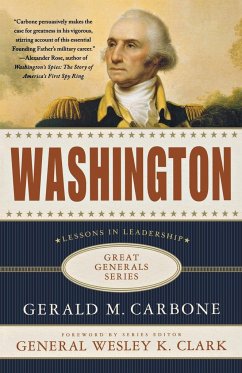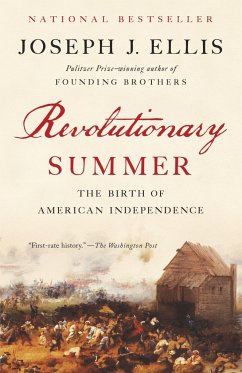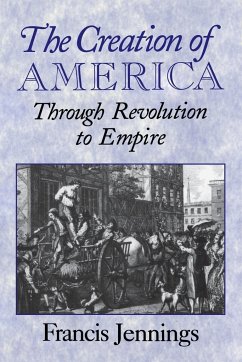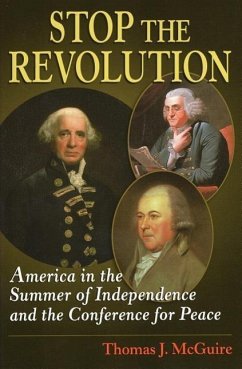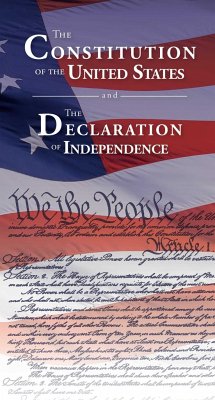
WASHINGTON CROSSING PMAH C
Versandkostenfrei!
Versandfertig in 1-2 Wochen
32,99 €
inkl. MwSt.

PAYBACK Punkte
16 °P sammeln!
Six months after Independence, the American Revolution was all but lost. A powerful British force had routed the Americans at New York, occupied three colonies, and advanced within sight of Philadelphia. George Washington lost 90 percent of his army, and was driven across the Delaware River. Panic and despair spread through the states. As the author recounts in this riveting history, many Americans refused to let the Revolution die. In mid-December, the people of occupied New Jersey began to rise against British and German troops. They created an opportunity for George Washington. On Christmas...
Six months after Independence, the American Revolution was all but lost. A powerful British force had routed the Americans at New York, occupied three colonies, and advanced within sight of Philadelphia. George Washington lost 90 percent of his army, and was driven across the Delaware River. Panic and despair spread through the states.
As the author recounts in this riveting history, many Americans refused to let the Revolution die. In mid-December, the people of occupied New Jersey began to rise against British and German troops. They created an opportunity for George Washington. On Christmas night, as a howling nor'easter struck the Delaware Valley, Washington led his men across the river and attacked the exhausted Hessian garrison at Trenton, killing or capturing nearly a thousand men. A second battle of Trenton
followed a week later. The Americans repelled an attack by Lord Cornwallis, but were nearly trapped. They escaped in the night, marched behind the enemy, and defeated a British brigade at Princeton. Badly shaken, the British retreated to an enclave near the coast. For twelve weeks the Americans kept the
initiative in small attacks that took a large toll of Howe's army, and wrecked his strategy. American spirits soared. A new three-year army was recruited, a continental executive was organized, and the states created permanent republican governments. European leaders were quick to take notice.
Fischer's richly textured narrative reveals the role of contingency in these events. We see how the campaign developed in a web of hard choices by many actors on both sides. While British and German forces remained rigid and hierarchical, Americans invented an open and flexible system that was fundamental to their success. At the same time, Washington and his army developed an American way of war, and also a war-ethic that John Adams called "the policy of humanity." Their conduct of the
War for Independence gave new meaning to the Revolution, in a pivotal moment for American history.
As the author recounts in this riveting history, many Americans refused to let the Revolution die. In mid-December, the people of occupied New Jersey began to rise against British and German troops. They created an opportunity for George Washington. On Christmas night, as a howling nor'easter struck the Delaware Valley, Washington led his men across the river and attacked the exhausted Hessian garrison at Trenton, killing or capturing nearly a thousand men. A second battle of Trenton
followed a week later. The Americans repelled an attack by Lord Cornwallis, but were nearly trapped. They escaped in the night, marched behind the enemy, and defeated a British brigade at Princeton. Badly shaken, the British retreated to an enclave near the coast. For twelve weeks the Americans kept the
initiative in small attacks that took a large toll of Howe's army, and wrecked his strategy. American spirits soared. A new three-year army was recruited, a continental executive was organized, and the states created permanent republican governments. European leaders were quick to take notice.
Fischer's richly textured narrative reveals the role of contingency in these events. We see how the campaign developed in a web of hard choices by many actors on both sides. While British and German forces remained rigid and hierarchical, Americans invented an open and flexible system that was fundamental to their success. At the same time, Washington and his army developed an American way of war, and also a war-ethic that John Adams called "the policy of humanity." Their conduct of the
War for Independence gave new meaning to the Revolution, in a pivotal moment for American history.




